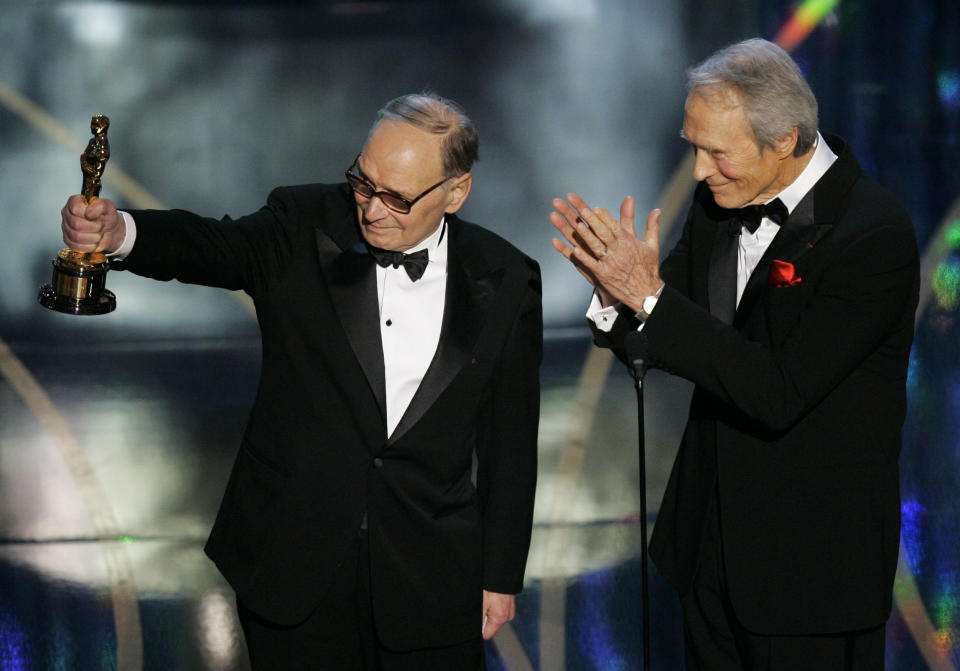Iconic movie score composer Ennio Morricone dies at 91

Ennio Morricone, the prolific Italian composer behind dozens of iconic scores, including movies like The Good The Bad and the Ugly, has died aged 91.
According to Italian news agency ANSA, he died in hospital in Rome following a fall in which he'd fractured his hip.
Morricone's career spanned 50 years, and an estimated 500 film scores.
Read more: Broadway star Nick Cordero dies at 41 of COVID-19
But he made his name for his prolific work with the director Sergio Leone, a former schoolmate, scoring all of his 'spaghetti westerns', in a professional relationship spanning decades.
Morricone provided innovative and memorable scores for hits like the ‘Dollars trilogy’, A Fistful of Dollars, For a Few Dollars More and The Good, the Bad and the Ugly, starring Clint Eastwood as the brooding gunslinger 'Joe', though better known as 'the man with no name'.

Born in Rome, he attended a musical conservatory from the age of 12 studying under composer Goffredo Petrassi, having been taught to read music by his musician father.
He began scoring movies after graduating in the mid-1950s, and between 1965 and 1973, wrote a staggering 150 scores making him likely the most prolific composer in modern cinema.
As well as working frequently with Leone, Morricone also worked with director Giuseppe Tornatore on all but one of his movies, notably the Oscar-winning Cinema Paradiso.

He worked with greats including Bertolucci on 1900, Brian de Palma on The Untouchables, and Terrence Malick on Days of Heaven, and also with luminaries like Oliver Stone, Mike Nichols, John Carpenter and Barry Levinson.
Latterly, he worked with Quentin Tarantino on his western The Hateful Eight, after Tarantino had used obscure Morricone tracks on a host of his other movies, including Kill Bill Vol. 1 and Inglorious Basterds.
Morricone's work on The Hateful Eight earned him his only competitive Oscar, after being nominated on six other occasions, including his controversial loss for his work on Roland Joffe's The Mission.

He won the Golden Globe and the BAFTA, but lost out on the Oscar to Round Midnight in 1986.
Morricone later won a honorary Oscar in 2006 for ‘his magnificent and multifaceted contributions to the art of film music’.
His recorded soundtracks have sold more than 50 million copies worldwide.
On learning of his death, Italian prime minister Giuseppe Conte tweeted: “We will always remember, with infinite gratitude, the artistic genius of the Maestro #EnnioMorricone. It made us dream, feel excited, reflect, writing memorable notes that will remain indelible in the history of music and cinema.”
He is survived by wife Maria Travia and their four children.

 Yahoo Movies
Yahoo Movies 

